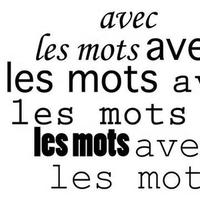Accent
Accent
Sotaque
- Il parle un français très correct mais avec un fort accent étranger.
- He speaks very correct French but with a strong foreign accent.
- Son témoignage avait un accent de sincérité évident.
- His testimony had an obvious emphasis of sincerity.
- Seu depoimento teve um sotaque de óbvia sinceridade.
- Dans la langue française on utilise beaucoup les accents qui modifient le son des lettres.
- In the French language, accents are used a lot, which modify the sound of the letters.
- Na língua francesa, os acentos são muito usados, o que modifica o som das letras.
- Во французском языке мы используем много акцентов, которые изменяют звучание букв.
Nous avons ici trois significations distinctes du mot accent.
Here we have three distinct meanings of the word accent.
Dans la première phrase, il s'agit de l'ensemble des traits articulatoires comme la prononciation ou l'intonation, propres à une communauté linguistique d'un pays ou d'une région.
In the first sentence, it is all the articulatory features such as pronunciation or intonation, specific to a linguistic community of a country or region.
В первом предложении это касается всех черт артикуляции, таких как произношение или интонация, характерных для языкового сообщества в стране или регионе.
L'accent dans la deuxième phrase est le ton, la manière d'être qui expriment un sentiment, un état d'esprit.
The accent in the second sentence is the tone, the way of being that expresses a feeling, a state of mind.
Het accent in de tweede zin is de toon, de manier van zijn die een gevoel, een gemoedstoestand uitdrukt.
Акцент во втором предложении - это тон, способ существования, выражающий чувство, состояние души.
Enfin, dans la dernière phrase, il s'agit de linguistique et l'accent est le signe placé sur une voyelle pour noter un fait phonétique ou grammatical.
Finally, in the last sentence, it is about linguistics and the accent is the sign placed on a vowel to note a phonetic or grammatical fact.
Ten slotte gaat het in de laatste zin over taalkunde en is het accent het teken dat op een klinker wordt geplaatst om een fonetisch of grammaticaal feit op te merken.
Por fim, na última frase, trata-se de linguística e o acento é o sinal colocado em uma vogal para anotar um fato fonético ou gramatical.
Наконец, в последнем предложении речь идет о лингвистике, а ударение - это знак, помещенный в гласный звук для обозначения фонетического или грамматического факта.

